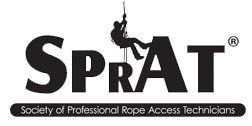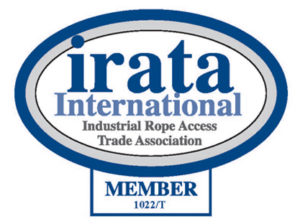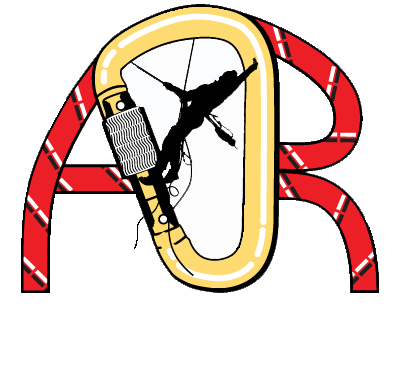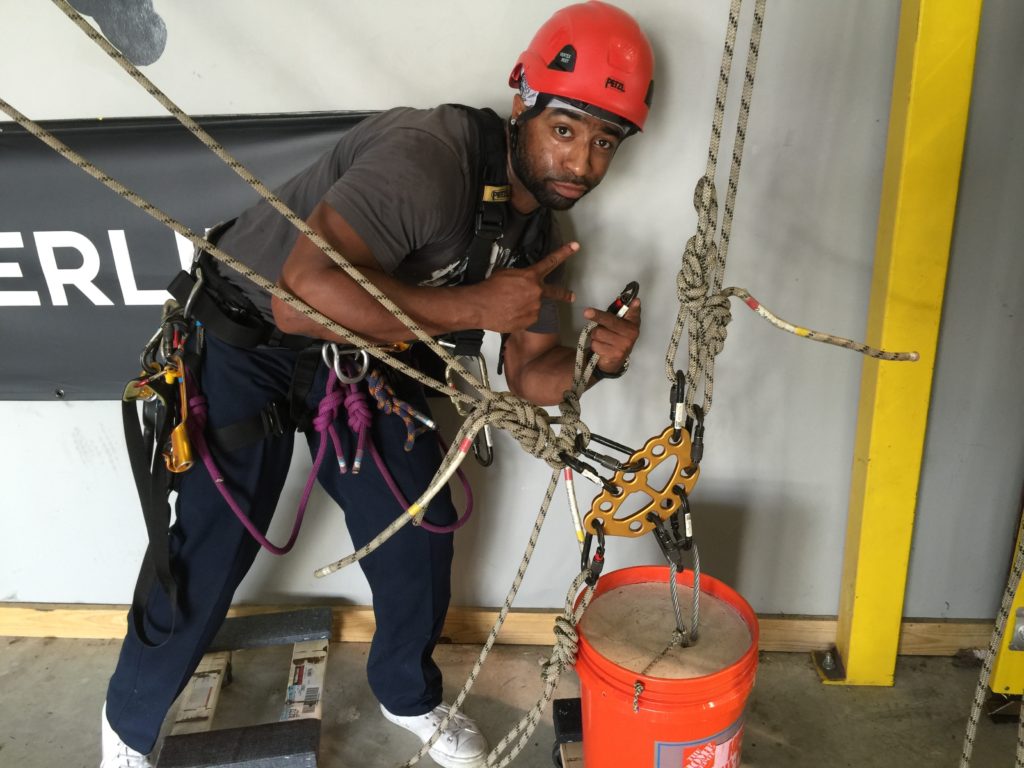I’ve been training people to be rope access technicians for a very long time. I love my job, but I hate Certification Day. I feel like a parent watching his kids at a school play. Will they remember their lines? Will they act their part, or will they lose focus and play with their marbles? It drives me crazy to look sometimes.
We are always trying to develop new and interesting methods for teaching our curriculum. We look at our performance, we talk to the students and the Assessors. We’ve even been know to “borrow” a trick or two. At the end of the day, we want the very best for all of our students, clients and end users.
I get really up tight about our pass rate based upon the level of certification and the scheme, whether it’s IRATA or SPRAT. I believe the Level 1 Technicians have to learn the most material. Think about it; they have very little clue about what they are about to get into, their body hurts after the first day, and they have to learn about the guidelines and the equipment. That’s a lot to cram into a four day period!
Upgrade Challenges
My opinion is changing, though. Many upgrade Candidates struggle mightily. If you take a look at the SPRAT requirements, there really doesn’t seem to be much that needs to be learned. SPRAT asks a Level 2 Candidate to perform 5 new exercises, tie one more knot and develop a deeper understanding about load sharing anchors. One week to learn these techniques doesn’t seem too burdensome.
The jump from IRATA Level 1 to 2 is a bigger jump. These Candidates must learn some complex rescues, including single anchor deviations, transfer, small re-anchor and aid climb. Add to this the ability to rig tensioned lines and other rigging exercises and you can see the week gets pretty busy.
My experience tells me that upgrade Candidates generally fail their certification more often than other levels, regardless of the scheme. I’ve come to this conclusion through nearly two decades of training, evaluating and employing these Technicians. This fact bugs the hell out of me. I want everyone to be successful, so when I see an upgrade Candidate struggle on Day 1 of the course, I know I have to work hard to try to fill the gap.
Most upper level Candidates tell me that they don’t conduct many of the maneuvers learned in the Level 1 (or Level 2, if I’m taking to a Level 3 Candidate) course. Depending upon their industry, they may find themselves going up and down, doing rope to rope transfers or maybe deviations. Rarely will they consistently conduct all of these maneuvers during the time they are collecting experience hours for their upgrade. This puts them at a disadvantage when it comes time for class. As you can imagine, it puts a lot of pressure on the trainer as well.
So, how do we fix this?
I think it’s important to take a look at each scheme’s requirements for experience for upgrade:

SPRAT requires 500 hours of on rope experience and 6 months experience at the certified level prior to being eligible for upgrade.

IRATA, on the other hand, requires 1000 hours of on rope experience and 1 year of experience at the certified level prior to being eligible for upgrade.
I view these requirements to be flawed. A Technician can achieve the hours of experience in half of the time necessary to meet the time requirement, meaning I can effectively work part time and still be in a position to upgrade my certification. This isn’t to say that I’ll pass, but I will be able to attend a course.
I also believe each scheme could use a little reorganization when it comes time to consider the maneuvers necessary to upgrade to the next level. It seems SPRAT is not challenging an upgrade Level 2 Candidate with enough throughout the week, while IRATA may provide more than many Candidates are prepared to manage.
The real solution…
lies with the Candidate. He must take an active role in his career advancement. He should practice maneuvers whenever possible. This is easy enough to do. He should ask his Supervisor to rig those maneuvers he doesn’t commonly complete. It only takes a bit more time to rig a rope to rope transfer, re-anchor or deviation. He should pay close attention to what his Supervisor is doing, and why. Ask questions, be prepared. After all, practice makes perfect.
We can help
AccessRULES can play an important role in every Technician’s career. AccessPLAY days are a great way for you to keep your skills sharp, learn new skills or just practice. We schedule these events as the need arises, but our goal is to hold an AccessPLAY day over one weekend every month. Just let us know when it’s most convenient for you. Also, our students are encouraged to give us a call when they find themselves with some time. If we’re available, we’ll throw on a harness and work with them during one of our courses. It doesn’t cost much, and the benefits are great!
I am interested in your comments regarding this blog. Let me know how you feel and how we can better prepare all of our students! Thanks for reading.

